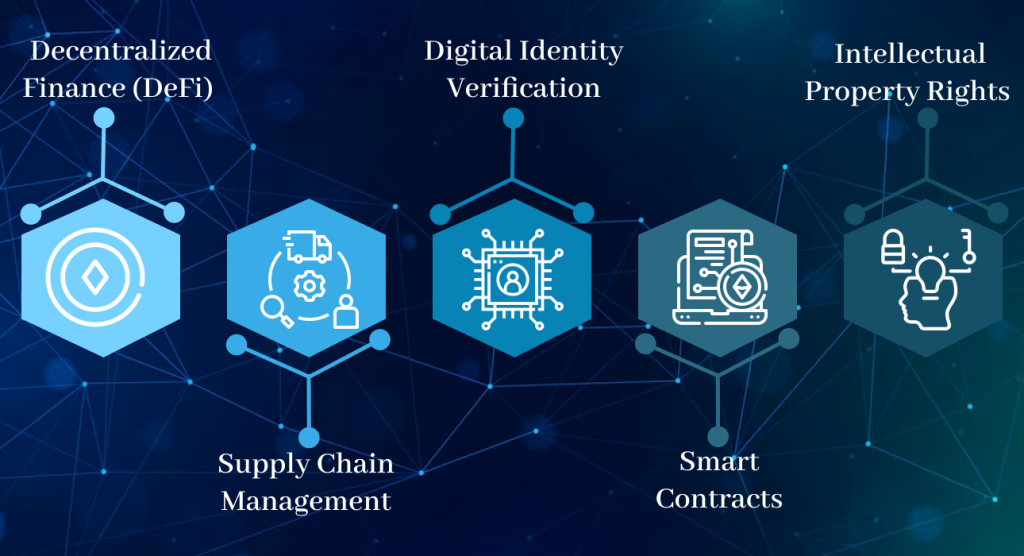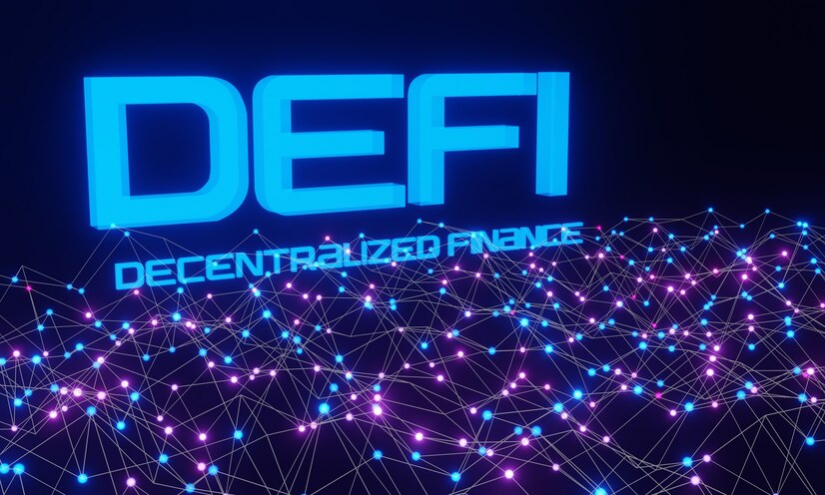5 ways Blockchain is Disrupting Traditional Business Models

Blockchain technology has been interrupting traditional business models across industries. It opens up new opportunities to innovate and improve the business processes, reduce cost and increase efficiency because of its decentralized, secure and transparent nature.
In this blog, we will discuss 5 ways blockchain is disrupting traditional business models.
Decentralized Finance (DeFi)
Decentralized Finance (DeFi) is a new financial system that uses blockchain technology to eliminate intermediaries, such as banks, and allow users to transact directly with each other. DeFi platforms offer a range of financial services, including lending, borrowing, trading, and asset management.
It has the potential to disrupt traditional banking by offering low-cost, accessible, and transparent financial services to everyone, including the unbanked population. Here are some ways in which DeFi is disrupting traditional business models:
-
Eliminating intermediaries : DeFi allows users to transact directly with each other, eliminating intermediaries like banks, brokers, and other financial institutions.
-
Open Access : DeFi offers financial services to anyone, this opens up financial services to the unbanked population and those who are underserved by traditional financial institutions.
-
Transparent and Auditable : DeFi transactions are recorded on a public blockchain, providing transparency and auditability. This reduces the risk of fraud and corruption.
-
Smart Contracts: DeFi uses smart contracts to automate financial transactions, reducing the need for manual processing and increasing efficiency.
-
Yield Farming :DeFi offers new ways to earn yield on digital assets through yield farming. Yield farming involves lending digital assets to earn interest, providing liquidity to decentralized exchanges, and participating in liquidity mining programs.

Supply Chain Management

Blockchain technology is being used to create more efficient and transparent supply chain management systems. It is disrupting traditional business models by offering a more efficient, transparent, and secure supply chain management system.
Here are some ways in which blockchain technology is disrupting traditional business models:
-
Improved Traceability
-
Better Security
-
Increased Transparency
-
Increase Efficiency
-
Reduce Counterfeiting
Digital Identity Verification
Digital identity verification is important for businesses that need to verify the identity of their customers, such as banks and online marketplaces. By using blockchain technology, businesses can verify the authenticity of identities in real-time, reducing fraud and identity theft.
Here are some ways in which digital identity verification is disrupting traditional business models:
-
Enhanced Security : Digital identity verification uses advanced technology, such as biometrics and machine learning. This enhanced security can reduce the risk of fraud and identity theft, and increase trust in digital transactions.
-
Improved Customer Experience : Digital identity verification eliminates the need for customers to provide physical copies of their IDs or go through time-consuming manual verification processes. This can reduce the time and effort required to verify identities, and improve the overall customer experience.
-
Cost Savings :Digital identity verification eliminates the need for manual processes and reduces the risk of fraud and can lead to substantial cost savings for businesses.
-
Increased Accessibility : Digital identity verification can increase accessibility to services by allowing people to verify their identities remotely. It can also benefit businesses that operate in multiple locations.
-
Compliance : Digital identity verification can help businesses comply with regulations related to identity verification, such as KYC (Know Your Customer) and AML (Anti-Money Laundering). It provides a more reliable and auditable way to verify identities, making it easier for businesses to demonstrate compliance with regulations.

Smart Contracts

Smart contracts are self-executing contracts that are programmed to execute when certain conditions are met. They can automate complex business processes and eliminate the need for intermediaries.
Here are some ways in which smart contracts are disrupting traditional business models:
-
Automation : Smart contracts automate many of the processes involved in executing contracts, reducing the need for manual intervention. This can reduce the time and effort required to execute contracts, and improve efficiency.
-
Increased Transparency : Smart contracts provide a transparent and auditable record of transactions, making it easier to identify and address issues in the contract. This increased transparency can reduce the risk of fraud and corruption, and improve compliance with regulations.
-
Reduced Costs : Smart contracts can reduce the cost of executing contracts by eliminating the need for intermediaries, such as lawyers, brokers, and other third parties. This can reduce transaction costs, and improve the speed of execution.
-
Improved Security : Smart contracts are executed on a blockchain network, which provides a high level of security. The decentralized nature of the blockchain network makes it difficult for hackers to compromise the network, reducing the risk of fraud and other security breaches.
-
Improved Trust : Smart contracts can improve trust between parties by ensuring that the terms of the contract are executed as agreed upon. This can reduce the risk of disputes, and improve the overall trustworthiness of the contract.
Intellectual Property Rights
Intellectual property (IP) rights are a form of legal protection for creations of the mind, such as inventions, literary and artistic works, and symbols, names, and images used in commerce. IP rights are important in traditional business models because they provide a legal framework for protecting and monetizing innovation. Here are some ways in which the concept of intellectual property rights is being disrupted by the digital age:
-
Copyright Infringement : The digital age has made it easier to copy and distribute copyrighted material without permission, such as music, movies, and books. This has led to a rise in online piracy, which has negatively impacted the revenue of traditional businesses that rely on IP.
-
Open Source Software : Open source software is software that is made freely available to the public, and can be modified and redistributed by anyone. This has disrupted traditional business models by providing a low-cost alternative to proprietary software.
-
Creative Commons Licensing : Creative Commons is a nonprofit organization that provides a standardized framework for licensing creative works, such as music, images, and videos. This has disrupted traditional business models by allowing creators to retain some rights to their work while also making it available for others to use and remix.
-
Patent Trolls : Patent trolls are companies that buy up patents with the sole purpose of suing other companies for infringement. This has disrupted traditional business models by creating a legal environment in which companies must constantly defend themselves against frivolous lawsuits.
- Blockchain and IP Rights : Blockchain technology provides a secure and transparent platform for tracking and enforcing IP rights. This could reduce the risk of IP theft and infringement, and provide a more efficient way to manage IP assets.

Conclusion
In conclusion, blockchain technology is disrupting traditional business models across industries by offering new opportunities to innovate, improve processes, reduce costs, and increase efficiency. As the technology continues to evolve, we can expect to see even more innovative applications of blockchain in the future.







